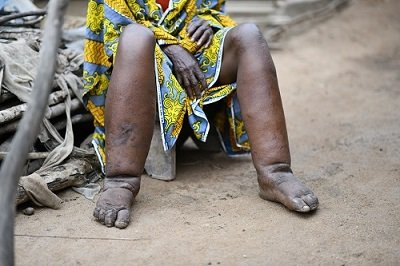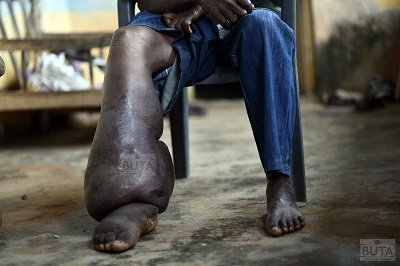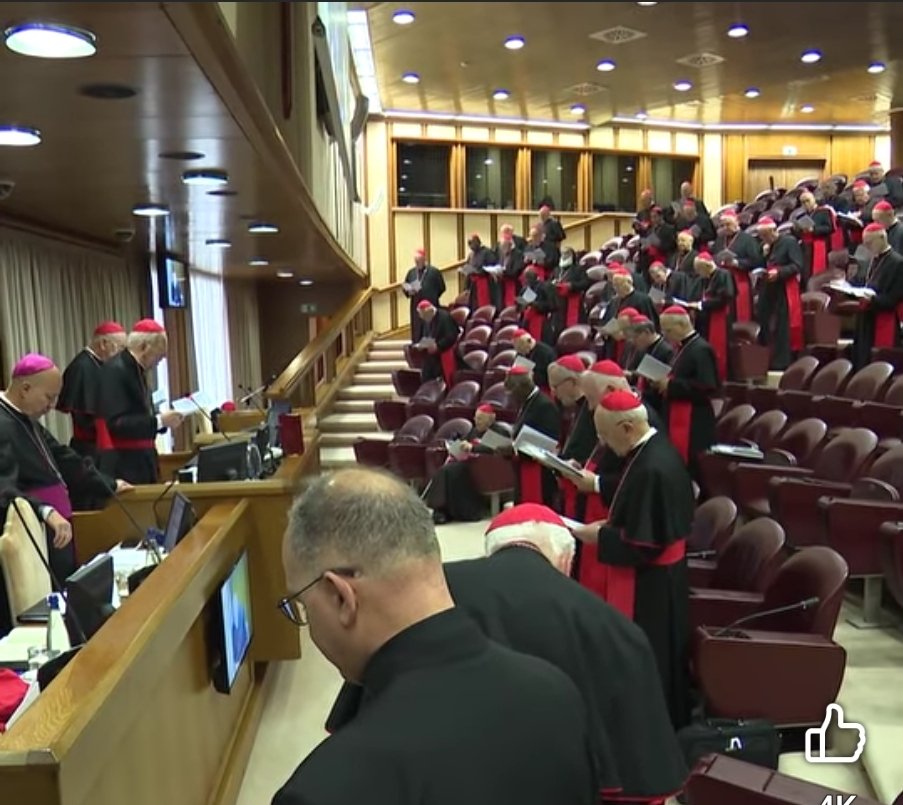News
Elephantiasis still prevalent in eight districts… efforts are made to contain it – Experts

Over 120 million people are infected with Elephantiasis, according to WHO
What started as a painful pinch on the leg of Madam AkuaAbokumaa, 20 years ago has now become a bigger swelling, despite numerous efforts to ease the bulge and the throbbing pain associated with it.
The 69-year-old woman is virtually immobile.
Pain is etched on her face as she struggles to walk around the mud houses in her remote village at Asemko, in the West Ahanta Municipal Assembly close to the shores of the Atlantic Ocean in the Western Region.

She is among over 120 million people who are infected and 40 million who are disfigured or incapacitated by microscopic larvae and microfilariae, which are transmitted to humans through mosquito bites, according to the World Health Organisation (WHO).
Madam Abokumaa said she had spent thousands of cedis generated from her small subsistence farming to visit hospitals and traditional healers in an attempt to treat the deadly sickness.
But the situation keeps getting worse.
Narrating her sad story to this reporter, she said that most of the traditional healers she visited,after taking money from her as consultation fees, told her that she had been bewitched.

Madam Abokumaa accused some of the healers of making the swelling worse, after making cuts on the leg with a razor blade and covering them with white powder.
She said the treatment rather caused more acute infections that spread to her entire body leaving her bed-bound and feverish.
“I have lost so much and even sold properties to pay the healers, or to get a taxi to the hospital when the pain is unbearable. Now it’s getting worse and my other leg is becoming swollen. It sometimes feels like I might just die,” she said.
Another person suffering a similar fate is 56-year-old John Asmah, who developed the early stages of elephantiasis as an infant. The father of six can no longer work and struggles to pay her children’s secondary school fees, let alone medical bills.

According to him, the loneliness had wanedhis confidence. His family abandoned him when the swelling started in because they saw him as a disabled person.
“I sometimes feel like I’m the only one with this problem, people walking by always laugh at me. Sometimes when I meet a group of people, they just stand there staring at my leg, asking if I’m cursed,” he said.
MrBright Alomatu, the Desk Officer for Lymphatic Filariasis and a biologist of the Neglected Tropical Diseases Programme (NTDP) of Ghana in an interview said:“Lymphatic filariasis (LF), commonly known as elephantiasis, is a disabling and disfiguring disease where the lymph vessels and nodes are damaged by mosquito parasites and may result in massive lymphoedema.”
He said it was a widespread and major public health problem in many developing countries with warm and humid climates, including Ghana.
He said with the implementation of the Mass Drug Administration (MDA) with various support, significant progress had been made towards the elimination of the disease as a public health problem.
He said that out of the 114 hotspot districts, 106 had been contained leaving eight districts namely; Sawla-Tuna-Kalba and Bole in the Savannah Region, Ellembelle in the Western Region, Sunyani West in the Bono Region, Lawra, Wa East and West in Upper West Region and Nabdam in the Upper East Region.
“Those affected with symptoms are left with strangely swilling deformed limbs which had been as a result of several years without treatment, he said.
According to Dr Sylvester Coleman, an entomologist and a lecturer at the Department of Clinical Microbiology of the Kwame NkrumahUniversity of Science and Technology, “elephantiasis is a severe manifestation of lymphatic filariasis, a disease which could also trigger extensive scrotal swelling, or hydrocele, in men.”
It is one of the leading causes of disability worldwide and is endemic in 73 countries.
He said the infection was transmitted by mosquitoes carrying tiny, thread-like worms, which nest in and attack a person’s lymphatic system, though many of those infected with the parasite will not present any symptoms.
He warned patients against the use of herbs for treating elephantiasis as well as seeking treatment from traditional healers, but rather visit the nearest health centres.
From Geoffrey Buta, Asemko
News
GBBF assistant treasurer, Aurora Commodore-Toppar eyes GOC Treasure slot at Elective Congress on Saturday

The Assistant treasurer of the Ghana Basketball Federation (GBBF), Madam Aurora Commodore-Toppar, has set her sights on becoming the next assistant treasurer of the Ghana Olympic Committee (GOC) at the upcoming Elective Congress on Saturday.
The daughter of the former Chief Executive Officer of Accra Hearts of Oak, Mr. Emmanuel Martey Commodore-Mensah, will be vying for the position against Bernard Quartey of the Ghana Boxing Federation and Edward Patrick Nii Lante Banerman of the Handball Association of Ghana.

Having had her nomination approved by the GOC’s Electoral Commission, the well-seasoned banker, with over 15 years of rich working experience, believes she is well-suited and positioned to help structure the finances of this esteemed organisation.
In a chat with Spectator Sports, the captain of the bronze-winning 2024 University of Ghana basketball team at the 11th African University Games in Zaire, Nigeria, revealed her commitment to effective and accurate financial management, growth, and development of all associated sports federations.
She said, “I am committed to the growth of the GOC, and I want to offer my financial knowledge to aid in ensuring that the GOC operates with the highest standards of financial governance and set-up.”
According to her, the mission is to help promote the GOC’s agenda widely, and having served for over two decades in sports—especially basketball—in various capacities and roles, she believes this experience will help protect the GOC’s finances.
“If elected as assistant treasurer, I will do my utmost, together with the treasurer, to manage the GOC’s finances, including accounting and financial reporting among others,” she added.
According to her, “Accurate financial record-keeping has been a problem across the board; I will help eradicate this issue.”
Aurora Commodore-Toppar stands for transparency, hard work, and an inclusive work culture, she further added.
The former Aburi Girls’ Secondary School basketball team captain has played pivotal roles in improving sports in the country—especially basketball—including being a member of the Local Organizing Committee (LOC) for the 2023 Africa Games, an LOC member for the recently concluded Hoop Rave SHS competition, a project lead for FIBA’s “Her World, Her Rules” initiative, chair for the 2024 Fetu Afahye Basketball Tournament, and founder of the Stomp De Yard Basketball Tournament, among others.
BY RAYMOND ACKUMEY
News
113 Cardinals hold 3rd General Congregation in Rome

The 113 Cardinals present in Rome held the third General Congregation on Thursday morning, and announced who will deliver the two pre-conclave meditations.
The Cardinals decided that Cardinal Víctor Manuel Fernández will celebrate the Mass on the sixth day of the Novemdiales, instead of Cardinal Kevin Farrell.
They agreed that Fr. Donato Ogliari, O.S.B., Abbot of St. Paul Outside the Walls, will deliver the first meditation on Monday, and that Cardinal Raniero Cantalamessa, Preacher Emeritus of the Papal Household, will deliver the second meditation at the beginning of the conclave, whose starting date has not yet been decided.

The Cardinals began a conversation about the Church and the world, deciding to hold the next General Congregation on Friday morning at 9:00 AM.
The Director of the Holy See Press Office, Matteo Bruni, told journalists that 61,000 people have paid their respects to the late Pope Francis as of 1:00 PM on Thursday, adding that St. Peter’s Basilica should close at midnight on Thursday, unless large crowds are still queuing to enter.
Following the Pope’s funeral on Saturday, April 26, a Rosary will be held in front of the Basilica of St. Mary Major on Saturday at 9:00 PM.
Mr. Bruni said the burial service for Pope Francis will take place in private.
Starting the morning of Sunday, April 27, the faithful may begin to visit the tomb of Pope Francis at the Marian Basilica.







